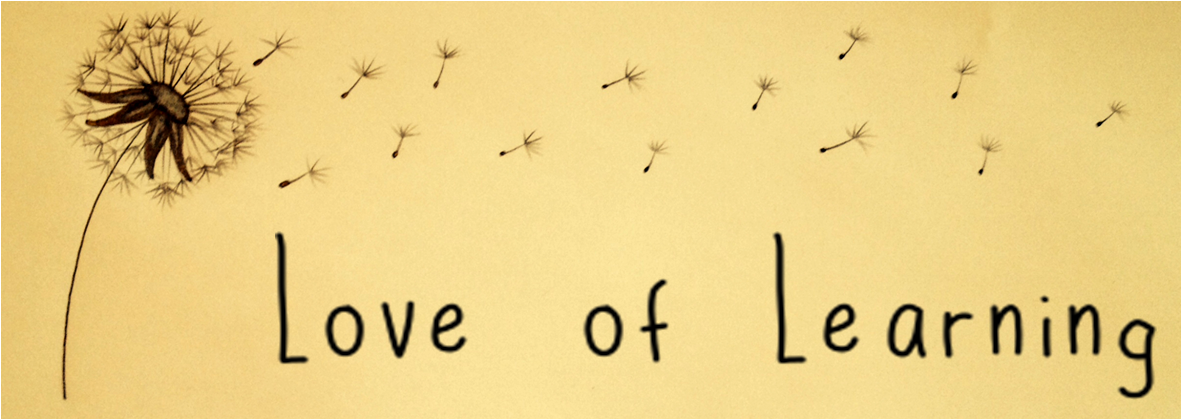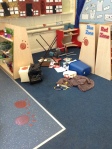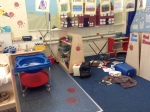Whilst on my first teaching placement I had a wonderful link tutor: a retired teacher who specialised in drama. She was lovely, and with my background in music and performing arts we got along well right from the off. One thing I remember about her was after each observed lesson she would always comment on ‘classroom presence,’ a phrase that I had not really come across before. I used to think to myself, “Classroom presence? Well yes, I’m present, surely that ticks that box?” She would say things like ‘the classroom is a stage; you have to be a performer as well as a teacher.’
To be honest, I don’t think I fully understood what she meant by that. But this week’s events with my class took me right back to that conversation 2 years ago.
Our English focus this week has been the story, “We’re going on a bear hunt.” I know what you’re thinking, “been there, done that, trekked through the grass and mud and snow.” Trust me, I know. I remember being read this story when I was in primary school. But this story is a classic for a reason.
As well as writing their own versions of the bear hunt, changing the animal and the obstacles along the way, I have been desperately trying to engage my reluctant writers. I have a group of girls who given the chance would draw butterflies and princesses all day, and a group of boys who would use all the Lego and Duplo in the school if they could get their hands on it. Sorry for the gender-stereotyping, but that is my class as they come! (I tried introducing some descriptive writing about Frozen characters and Transformers last week, which weren’t met with the same enthusiasm as I had hoped.)
Allow me to set the scene. Whilst the children were in assembly I ransacked the role play, turning over the table and scattering the resources all over. I painted large bear prints down the wall, across the floor and along the pipes. (I mixed some washing up liquid with the paint- my TA assures me that means it can be washed off easily!)
By way of context; the class have already read the story last year in reception. Told it, acted it out, been on an outdoor learning school trip on a bear hunt theme…. Would my painty paw prints really match up? In all honesty I wasn’t expecting much of a reaction. But as usual, my class proved me wrong. (They’re getting too good at that!)
We came back from assembly and the reactions were priceless. We had shock, laughter, worry, outrage…the whole range. It was a whispered conversation between two of my more ‘streetwise’ children that made me smile the most.
“Do you think they’re real?”
“Nah, Miss N’s painted them.”
“Yeah I know but shall we pretend?”
“Yeah”
That willingness to use your imagination and play along is one thing that I think you are never too old for. Remember Alice’s fairy houses and role play in year 6? To get theoretical for a moment, it’s all down to the “willing suspension of disbelief.” A term coined in 1817 by poet and philosopher Samuel Taylor Coleridge. He postulated that if a writer (in our case a teacher) could incorporate a “human interest and a semblance of truth” into a story, the reader (or pupil) would suspend judgement about the implausibility of the narrative. This goes for adults as well as children. When you go to the theatre you know that those people singing and dancing on stage are playing characters and aren’t real, but you are willing to suspend reality in order to become an active player in the narrative.
I believe this is SUCH a powerful tool for us as teachers. If we can get the children to suspend reality and become active players, that’s half the battle won. They then become intrinsically motivated to solve problems and try new things. The work that has bubbled out of these bear prints has been so exciting to see. The children have created wanted posters with descriptions and promises of rewards for anyone who finds the bear. My group of reluctant writers spent the morning in our construction area planning the most wonderfully elaborate traps to catch the bear and were more than happy to label them and tell me all about what they did! The small group of butterfly girls that ordinarily wouldn’t say boo to a goose marched off to the neighbouring year two classes to warn them of the dangers of the bear! Even the children who are relatively ‘street wise’ and knew it was just paint have kept schtum because they want to come along for the ride.
So in answer to the title question, “are we teachers or actors?” I would say we have to be a bit of both! If we’re not willing to suspend reality every now and then (let’s face it, teaching can get pretty surreal sometimes!) and become ‘players’ with the children, how can we expect them to?
I’d like to end with a thank you to my link tutor- it may have taken me two years but I finally fully understand your brilliant advice!
Hannah



I cover all primary classes in the course of a normal week, from Drama in P1 to ICT in P7. I know that I get the best results when I get totally involved and act out situations. It does cause mass hysteria at times but the results are well worth a little disruption.
LikeLike
We agree Lindsay! The results are definitely worth a bit of hysteria!
LikeLike